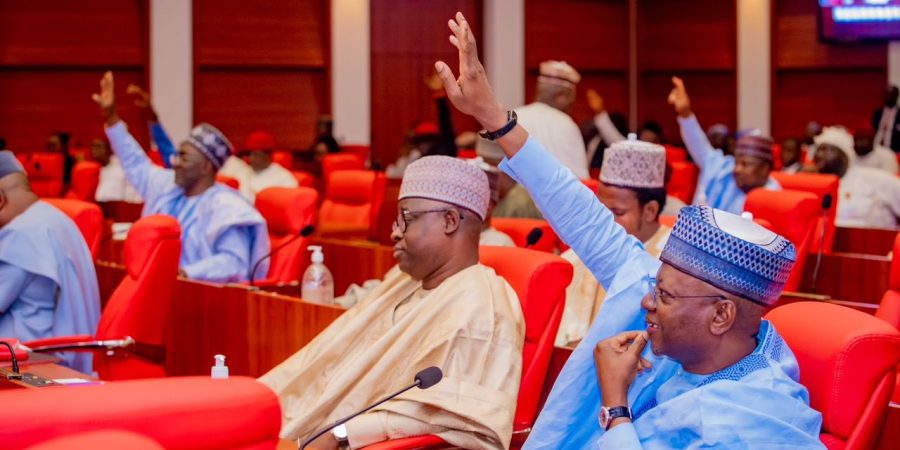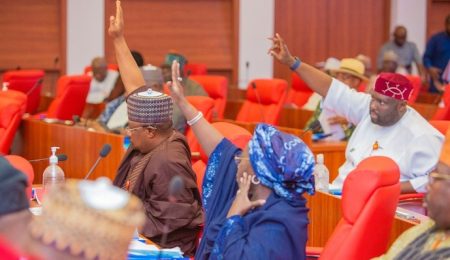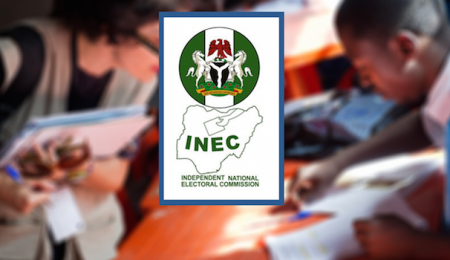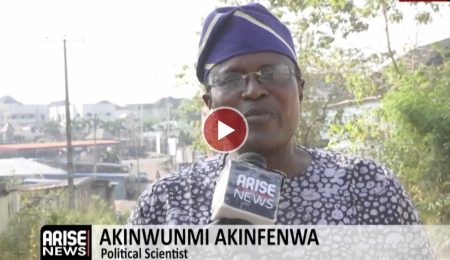A major milestone in Nigeria’s quest for equitable state creation and inclusive development is beginning to take shape, as an overwhelming number of senators in the 10th National Assembly have reportedly declared support for the creation of Anioma State proposed to become the sixth state in the Southeast geopolitical zone.
With about 90 Senators, well above the required two-thirds constitutional threshold, reportedly already backing Senate Bill 481, there are indications that the initiative has gained unprecedented national traction.
Leading voices from across party lines, religious and regional affiliations were said to have rallied behind the movement, anchored by Senator Ned Nwoko, who represents Delta North Senatorial District.
The bill, formally introduced in the Senate as part of the ongoing constitutional amendment process, sought to promote equity, national cohesion, and federal balance by addressing the historical underrepresentation of the Southeast in Nigeria’s state structure.
Sources listed those publicly endorsing the proposal as including the Deputy Senate President, Barau Jibrin; Senate Leader, Michael Opeyemi Bamidele and Senate Leader, Abba Moro.
They also included former governors Adams Oshiomhole (Edo), Seriake Dickson (Bayelsa), Orji Uzor Kalu (Abia); and Southeast political heavyweight Victor Umeh.
The proposal was also said to be enjoying the backing of former Ogun State Governor, Gbenga Daniel; FCT Senator Ireti Kingibe; former Plateau Governor, Simon Lalong; and Anambra North Senator, Tony Nwoye.
Their unified support underscored the national character of the movement and signalled its strong prospects for legislative and eventual executive approval.
Nwoko, in a letter dated May 27, 2025, urged Senate President Godswill Akpabio and his colleagues to back the bill, citing the urgent need for justice, equity, and inclusive development.
According to political analysts, the Anioma State proposal has now moved from mere agitation to a concrete legislative reality.
While the Red Chamber advanced national conversations around federal restructuring and state equality, Kogi Central Senator, Natasha Akpoti-Uduaghan, is redefining grassroots development through innovation and technology.
In a bold empowerment initiative that blended education, entrepreneurship, and technology, Senator Natasha has trained and empowered 250 constituents in cutting-edge fields such as drone technology, renewable energy, data analytics, and advanced welding.
Eighty of the beneficiaries were trained specifically in drone operations geared toward environmental sustainability, security, and infrastructure monitoring.
Otu Aligns with State Creation, Women Inclusion, State Police
Cross River State Governor, Bassey Out, has advocated the creation of new states, greater inclusion of women and persons with disabilities in governance, and the establishment of state police as part of ongoing efforts to amend the 1999 Constitution.
Speaking through his deputy, Hon. Peter Odey, at the South-South Zonal Public Hearing on the Constitution Review held at the Metropolitan Hotel in Calabar, Otu said the exercise was both timely and historic.
He emphasised the need for a constitutional framework that responds to evolving political, social, and economic realities.
“This exercise resonates strongly with the hope and aspiration of our people. Our desire is a more inclusive, just and effective framework of governance,” he stated.
He reminded the audience that sovereignty rests with the people and described the review process as a reaffirmation of the social contract between government and citizens.
“The constitution must evolve with time. Any document that governs over two hundred million people must reflect contemporary needs and expectations,” Otu said.
Bayelsa, Delta, Edo Insist on Fiscal Federalism, Resources Control, More LGAs
The governments of Bayelsa, Delta and Edo States, weekend, insisted on and demanded a proper fiscal federalism and resource control wherein states were allowed to control and manage their resources and pay taxes to the federal government at the House of Representatives Committee on Constitutional Review public hearing.
The states, who spoke at the DSP Alamieyeseigha Memorial Banquet Hall Government House, Yenagoa, venue of the public hearing for South South Zone A, comprising Bayelsa, Delta and Edo States also demanded among others, state police, devolution of powers to federating units, increased derivation formula, judicial and electoral reforms and creation of more local government areas.
These were some of the issues canvassed at the hearing by government representatives from Bayelsa, Delta, and Edo States, as well as ethnic nationalities, traditional rulers, pressure groups, women, and youth groups.
Governor Douye Diri of Bayelsa State, in his remarks, advocated that the constitutional review process should create opportunities to address the injustices suffered by the people of the Niger Delta, the inequitable distribution of resources, the need for fiscal federalism, and for States to be saddled with the responsibilities of creating local government areas they can adequately fund.
He said the cornerstone of any robust democracy lay in the fundamental right of the citizens to amend the Constitution that laid the foundation of their governance.
He stated that a review of the Constitution ensured that it was not a static document, but rather a dynamic instrument that evolved in response to the changing needs and aspirations of the populace.
Governor Diri stressed that the crux of the demands of Bayelsa State was a firm commitment to the establishment of a federal system and structure that was “genuinely just, equitable, responsive, and demonstrably dedicated to the holistic development of not just the state or the Niger Delta region but also the Nigerian federation.”
The Attorney General and Commissioner for Justice, Mr Biriyai Dambo, SAN, who articulated the position of the state government, among other demands, called for the creation of additional 25 local government areas for the state lamenting that the eight local government of the state is an injustice to the rich oil and gas producing state.
Governor Sheriff Oborevwori of Delta State, represented by the Deputy Governor, Sir Monday Onyeme, called for environmental justice for oil producing communities, local government autonomy and upward review of the derivation principle and revenue allocation formula for states to control their resources.
The Edo State Governor Senator Monday Monday Okpebholo represented by the Attorney General and Commissioner for Justice, Dr Samson Osagie, said the state backed legislative, judicial, and electoral reforms with electronic transmission of election results and the creation of state police but was against carving any part of the state for the formation of another state.
Earlier, Majority Leader and Deputy Chairman of the House of Representatives Constitution Review Committee, Prof. Julius Ihonvbere, said his Team A, covering Edo, Bayelsa and Delta states, was in the South South zone to consult with people of the three states and hear from them on the areas that needed to change in the Constitution.
According to Ihonvbere, only a transparent and participatory process would guarantee development in Nigeria.
Sunday Aborisade, Tony Icheku, Amby Uneze, Olusegun Samuel and Bassey Inyang
Follow us on:



